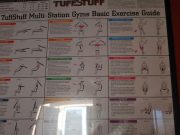In today’s fast-paced world, it’s all too easy to find ourselves trapped in a cycle of overthinking, where our minds relentlessly replay past events or anxiously anticipate future ones. This mental whirlwind not only drains our energy but also robs us of the peace and joy that come with living in the present moment. If you’ve ever felt overwhelmed by your thoughts, know that you’re not alone—and there are simple, effective strategies to help you break free. In this article, we’ll explore practical tips designed to quiet your mind and invite relaxation into your life. By embracing these techniques, you can cultivate a sense of calm and clarity, allowing you to navigate life’s challenges with greater ease and resilience. Let’s take this journey together toward a more peaceful and balanced state of being.
Understanding the Roots of Overthinking and Its Impact on Your Well-being
Overthinking often stems from deeply ingrained habits or emotional responses. It’s crucial to identify these roots to effectively address them. Common triggers include fear of failure, perfectionism, and past experiences that have instilled a sense of doubt or anxiety. By understanding these underlying causes, you can begin to unravel the mental knots that keep you stuck in a cycle of overanalysis.
- Fear of failure: This often leads to excessive worry about outcomes, preventing you from taking action.
- Perfectionism: Striving for perfection can result in endless pondering over minor details.
- Past experiences: Negative past events can trigger a loop of second-guessing your current decisions.
The impact of overthinking on your well-being is significant. It can lead to increased stress levels, disrupt your sleep, and even affect your physical health. Here’s a quick overview of its effects:
| Aspect | Impact |
|---|---|
| Mental Health | Increased anxiety and depression |
| Physical Health | Fatigue and weakened immune system |
| Social Life | Isolation due to constant worry |
Recognizing these impacts is the first step towards fostering a healthier mindset. By addressing the roots of overthinking, you pave the way for more relaxation and peace in your daily life.

Practical Techniques to Quiet Your Mind and Foster Inner Peace
Finding inner peace amidst the chaos of daily life can often feel like an elusive goal. However, by incorporating a few practical techniques into your routine, you can quiet your mind and cultivate a sense of calm. Here are some effective methods to help you achieve this:
- Mindful Breathing: Take a few moments each day to focus solely on your breath. Inhale deeply through your nose, hold for a few seconds, and then exhale slowly through your mouth. This simple practice can help center your thoughts and reduce stress.
- Gratitude Journaling: At the end of each day, jot down three things you are grateful for. This practice shifts your focus from what’s troubling you to the positive aspects of your life, fostering a sense of contentment.
- Body Scan Meditation: Lie down comfortably and mentally scan your body from head to toe, acknowledging any tension and consciously releasing it. This exercise enhances self-awareness and promotes relaxation.
| Technique | Benefit |
|---|---|
| Mindful Breathing | Reduces anxiety |
| Gratitude Journaling | Increases positivity |
| Body Scan Meditation | Enhances relaxation |

Creating a Relaxation Routine to Cultivate Calmness Daily
Embracing a daily relaxation routine can be a game-changer for those who find themselves tangled in thoughts. The goal is to create a serene space in your day where tranquility reigns. Begin by designating a specific time each day for your relaxation practice. This could be in the morning to set a peaceful tone for the day, or in the evening to unwind and reflect. Consistency is key, so make this a non-negotiable part of your schedule.
Consider incorporating the following elements into your routine:
- Mindful Breathing: Spend a few minutes focusing on your breath. Inhale deeply through your nose, hold for a moment, and exhale slowly through your mouth. This simple act can help center your mind.
- Guided Meditation: Use apps or online resources that offer short guided meditations. Even just five minutes can make a difference.
- Gentle Movement: Incorporate light stretching or yoga to release tension and foster a sense of calm.
To personalize your routine, use the following table as a guide to explore various activities and their potential benefits:
| Activity | Benefits |
|---|---|
| Journaling | Clarifies thoughts and emotions |
| Aromatherapy | Reduces stress through soothing scents |
| Reading | Distracts the mind and inspires creativity |
Remember, the intention is to create a ritual that speaks to you personally. Experiment with different practices and observe how they make you feel. Your routine should be a sanctuary of calmness amidst the chaos of everyday life.

Empowering Your Mindset with Positive Self-talk and Mindfulness Practices
In our fast-paced world, the art of calming the mind can often feel elusive. Yet, by embracing positive self-talk and mindfulness practices, you can create a tranquil mental space that allows you to thrive. Begin by recognizing and reshaping your internal dialogue. When faced with self-doubt, replace negative thoughts with empowering affirmations. For instance, swap “I can’t handle this” with “I am capable and strong.” This simple shift can have a profound impact on your overall mindset.
- Practice Gratitude: Each day, take a moment to reflect on what you’re grateful for. This practice can help shift focus from stressors to the positive aspects of life.
- Mindful Breathing: Dedicate a few minutes to deep breathing exercises. Focus on the rhythm of your breath to anchor yourself in the present moment.
- Visualization: Imagine a serene place or a successful outcome to foster a sense of calm and positivity.
Integrating mindfulness into your daily routine doesn’t have to be complicated. Below is a simple table illustrating effective mindfulness practices and their potential benefits:
| Practice | Benefit |
|---|---|
| Meditation | Reduces stress and enhances focus |
| Journaling | Encourages self-reflection and clarity |
| Body Scan | Promotes relaxation and body awareness |
By consistently applying these techniques, you nurture a mindset that is resilient and open to growth, allowing you to stop overthinking and find peace within.








































